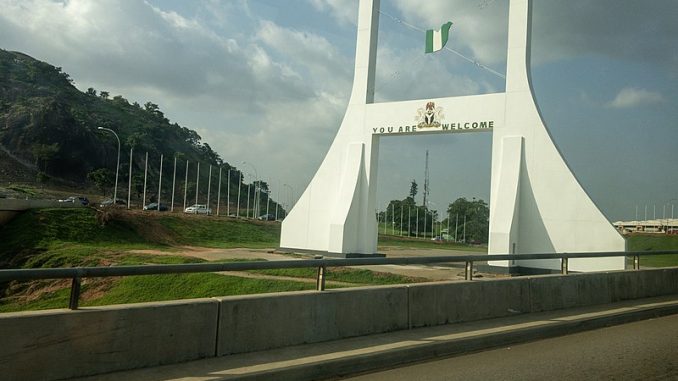The Heartbeat of Abuja: The City Gate
Imagine arriving in Nigeria’s vibrant capital, Abuja, and being greeted by the imposing City Gate. This landmark is more than just an entrance; it’s a warm embrace, a symbol of homecoming for locals, and a beacon of hope for visitors. Let’s explore the memories and emotions interwoven with this iconic structure.
Abuja City Gate: A Symbol of Unity and Progress
Approaching the Abuja City Gate, you can’t help but feel a surge of pride. Its towering arches and intricate design reflect the craftsmanship and creativity of the Nigerian people. More than a structure, the City Gate symbolizes our collective love for our country and unity in diversity.
Established in the early 1980s when Abuja was declared Nigeria’s new federal capital, the City Gate was completed in 1986 by the Italian construction company Gitto. Its design blends traditional Nigerian architecture with modern elements, making it a visual representation of the city’s progress and modernity. Over the years, the gate has become a beloved symbol of Abuja, embodying the city’s spirit and welcoming all who pass through it.
A Place for Memories and Celebrations
The City Gate is a backdrop for countless joyful, reflective, and celebratory moments. Families capture selfies, friends gather for picnics, and couples share special moments under its grand arches. It’s a place where stories are told, friendships are formed, and memories are made—a true testament to Abuja’s vibrant spirit.
Preserving the Essence of Abuja
As Abuja grows and evolves, the City Gate stands as a guardian of its spirit and identity. Preservation efforts ensure that its historical significance and architectural beauty will continue to inspire future generations. The City Gate is not just a landmark; it’s a custodian of our shared history and collective memory.
Abuja City Gate Address
- Address: 1 Umaru Musa Yar’Adua Road, Kwaba, Abuja, 900108, Federal Capital Territory, Nigeria
Frequently Asked Questions About City Gate Abuja
- What is the City Gate in Abuja?
- The City Gate is a monumental landmark serving as the entrance to the Federal Capital Territory of Nigeria. It symbolizes the city’s identity and unity.
- Where is the City Gate located in Abuja?
- It is located at the main entrance to Abuja, along the Nnamdi Azikiwe Expressway, marking the boundary between the Federal Capital Territory and neighboring states.
- What is the significance of the City Gate?
- The City Gate holds symbolic importance as the entrance to Abuja. It represents the city’s identity, unity, and progress, serving as a visual landmark and a welcoming beacon for visitors.
- Can visitors enter the City Gate in Abuja?
- While visitors cannot typically enter the structure itself, they can explore the surrounding area. The City Gate is a popular spot for photography and enjoying the scenery.
- Is there an admission fee to visit the City Gate in Abuja?
- No, there is no admission fee to visit the City Gate. The area is open to the public and freely accessible.
- Are there any guided tours or informational resources about the City Gate in Abuja?
- Although there are no official guided tours, visitors can find information about its history and significance online, through local guides, and at tourist information centers in Abuja. Signage near the gate may also provide context about its importance.
Key Takeaways
- Iconic Landmark: The Abuja City Gate is a symbol of unity, pride, and progress for Nigeria’s capital.
- Historical Significance: Established in the early 1980s, it marks Abuja’s transition to becoming the federal capital.
- Cultural Hub: It’s a gathering place for residents and visitors to create and share memories.
- Free Access: The gate and its surrounding area are open to the public without an admission fee.
- Symbol of Growth: Despite Abuja’s modernization, the City Gate preserves the city’s essence and heritage.
Wrap Up
The Abuja City Gate represents everything that makes Abuja feel like home. From its warm welcome to its vibrant surroundings, the gate is a place of pride, unity, and belonging. Whether you’re a visitor or a local, take a moment to feel the heartbeat of Abuja, which is always happy to welcome you home.
4o



